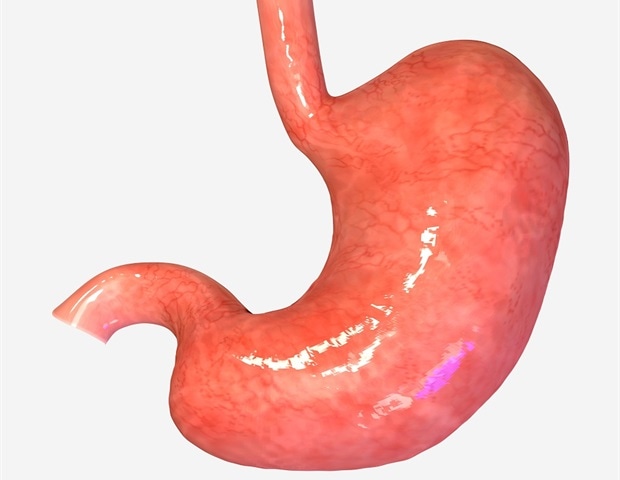
[ad_1]

A world section 3 scientific trial, finished in participation with Weill Cornell Medication and NewYork-Presbyterian, discovered {that a} new focused therapy referred to as zolbetuximab, given together with a normal chemotherapy, prolonged survival for sufferers with superior gastric or gastroesophageal junction most cancers that overexpressed a particular biomarker.
Outcomes from the GLOW examine, revealed July 31 in Nature Medication, along with outcomes from the parallel SPOTLIGHT examine that evaluated zolbetuximab with an alternate commonplace chemotherapy, prompted the USA Meals and Drug Administration to grant precedence evaluation to the producer’s biologic license utility and set January 12, 2024, because the goal choice date.
If accepted, zolbetuximab would be the first focused remedy within the U.S. for sufferers with beforehand untreated superior gastric or esophageal junction most cancers that’s human epidermal development issue receptor 2 (HER2)-negative and overexpresses the protein claudin-18 isoform 2 (CLDN 18.2).
Gastric most cancers is the fifth most recognized most cancers globally, and its incidence has elevated markedly in the previous few a long time. Sufferers with most cancers of the abdomen or on the junction the place the esophagus joins the abdomen, referred to as the gastroesophageal junction, usually have few signs in early illness levels, so most are recognized after the most cancers has superior or grow to be metastatic. In accordance with the Nationwide Most cancers Institute, the five-year survival charge for sufferers with metastatic illness is about 7 %.
There are few focused therapies accessible for sufferers with gastric and gastroesophageal cancers: Sufferers with tumors expressing the programmed cell dying ligand 1 protein may be handled with immunotherapy, and people with HER2-positive tumors may be handled with trastuzumab, additionally identified by the commerce identify Herceptin. There may be one other group of HER2-negative sufferers who match neither class, and for whom focused therapies aren’t typically used. Nevertheless, these gastric cancers are likely to have increased ranges of CLDN 18.2, which is generally present in gastric mucosa cells and turns into extra uncovered as gastric most cancers develops. Zolbetuximab is a monoclonal antibody, administered intravenously, that binds to CLDN18.2, killing the dividing most cancers cells immediately and likewise alerting the immune system to reply.
Presently, commonplace chemotherapy regimens are the one therapy choices for a lot of sufferers with HER2-negative and low PD-L1 gastric and gastroesophageal most cancers, and survival is about 12 months. A brand new therapy for these sufferers would tackle a big unmet want to increase survival.”
Dr. Manish Shah, lead examine writer and trial co-principal investigator, the Bartlett Household Professor of Gastrointestinal Oncology and director of the Gastrointestinal Oncology Program within the Division of Hematology and Medical Oncology at Weill Cornell Medication
The GLOW examine was carried out between November 2018 and February 2022 at 166 websites, together with NewYork-Presbyterian/Weill Cornell Medical Middle, throughout 18 nations. A complete of 507 sufferers with beforehand untreated HER2-negative regionally superior or metastatic gastric or gastroesophageal junction most cancers expressing CLDN18.2 had been randomized to obtain zolbetuximab together with capecitabine plus oxaliplatin chemotherapy (CAPOX) or a placebo plus CAPOX.
Zolbetuximab plus CAPOX considerably elevated progression-free survival in contrast with placebo plus CAPOX. Particularly, zolbetuximab plus CAPOX lowered the chance of illness development or dying by 31 % in contrast with placebo plus CAPOX. The median progression-free survival was 8.21 months for sufferers within the zolbetuximab group in contrast with 6.8 months for these within the placebo group. Moreover, the addition of zolbetuximab doubled the prospect of not having illness development at 2 years (from 7 % with placebo versus 14 % with zolbetuximab).
Outcomes additionally demonstrated that zolbetuximab plus CAPOX considerably lengthened total survival and diminished the chance of dying by 23 %. The median total survival was 14.4 months for sufferers within the zolbetuximab plus CAPOX group versus 12.2 months for these within the placebo plus CAPOX group. Lengthy phrases survival equally elevated considerably with the addition of zolbetuximab – 29 % survival at 2 years with zolbetuximab versus 17 % with placebo.
Therapy-related adversarial occasions had been related between teams, with nausea, vomiting and decreased urge for food reported most steadily. “These unintended effects had been as anticipated,” stated Dr. Shah, who can be chief of the Strong Tumor Oncology Service and co-director of the Middle for Superior Digestive Care at NewYork-Presbyterian/Weill Cornell Medical Middle and a member of the Sandra and Edward Meyer Most cancers Middle and of the Englander Institute for Precision Medication at Weill Cornell Medication. “It was good to see zolbetuximab didn’t add vital toxicity.”
Equally, a examine revealed in The Lancet Might 20, 2023 reported robust survival outcomes for the worldwide section 3 SPOTLIGHT trial that evaluated zolbetuximab together with a distinct chemotherapy routine consisting of modified folinic acid or levofolinate, fluorouracil and oxaliplatin (mFOLFOX). Dr. Shah was a member of the SPOTLIGHT steering committee, co-author of The Lancet paper and concerned in designing each the GLOW and SPOTLIGHT trials, which had been sponsored by Astellas Pharma, the maker of zolbetuximab.
“We now have proof from two massive trials exhibiting that the addition of zolbetuximab gives a significant survival profit for sufferers with CLDN 18.2-positive gastric cancers,” he stated. “If zolbetuximab is accepted, sufferers will have the ability to resolve with their physicians whether or not zolbetuximab plus CAPOX or mFOLFOX is the correct routine for them.”
Supply:
Journal reference:
Shah, M. A., et al. (2023). Zolbetuximab plus CAPOX in CLDN18.2-positive gastric or gastroesophageal junction adenocarcinoma: the randomized, section 3 GLOW trial. Nature Medication. doi.org/10.1038/s41591-023-02465-7
[ad_2]